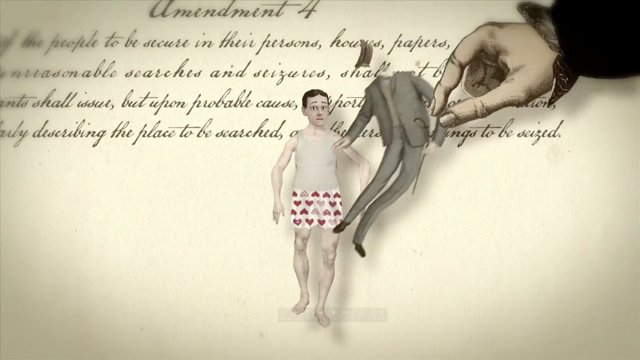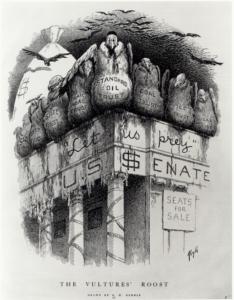Sharlenemusic Part 1 Part 3 “In the 1833 landmark Supreme Court case Barron v Baltimore, the Court ruled that the Ninth Amendment pertained to the federal courts only, and not to the state level of government. Basically, that meant that, originally, the Amendment protected the rights of the people from expanding power of the federal government, which is a government of ‘enumerated powers.’ This is where the Fourteenth Amendment comes in, as it contains the Privileges or Immunities Clause which limits the powers of the state government. These two amendments work in conjunction with one another to ensure all rights are protected at all levels of government.” Read here.
What is Voluntaryism? “States may add to fundamental rights but can never diminish or infringe upon fundamental rights by legislative processes….” Fundamental Rights.
Together, the 9th and 10th Amendments express the fundamental theory of American government, National and State, the theory of reserved rights and of delegated powers. The former article specifies rights, the latter specifies powers. The Ninth Amendment of the Federal Constitution, here. The Court refers to these protected rights as ‘penumbras’ that although they are not specifically enumerated, they represent varying ‘zones of privacy’ where the government may not intrude… Read more.

Did you hear? Colorado’s burgeoning hemp industry got a jolt recently, read here. Hemp legalization would be good news for America’s farmers. “Hemp and marijuana both are cannabis plants – in fact, both are cannabis sativa. Hemp, however, contains virtually no THC (the psychoactive ingredient in pot), so smoking it will not get you stoned.
Check out this informative report: Hemp as an Agricultural Commodity by Renee Johnson (2017), PDF. Yet industrial hemp has endured 80 years of purgatory and prohibition at the hands of the government,” here. What is the Marihuana Tax Act of 1937? Also, a local brewmaster has created cannabis-infused beer? Rumor has it, there are plans to start selling specialty beers in Colorado by the end of the year! This & other stories at The Cannabist.
“That the people have an original right to establish, for their future government, such principles as, in their opinion, shall most conduce to their own happiness is the basis on which the whole American fabric had been erected. The exercise of this original right is a very great exertion; nor can it, nor ought it, to be frequently repeated. The principles, therefore, so established, are deemed fundamental. And as the authority from which they proceed is supreme, and can seldom act, they are designed to be permanent.” Marbury v. Madison, 5 U.S. (1 Cranch) 137; 2 L. Ed. 60 (1803)
Recent advances in information technology threaten privacy and have reduced the amount of control over personal data and open up the possibility of a range of negative consequences as a result of access to personal data. Read here. The Fourth Amendment protects people, not places. “What a person knowingly exposes to the public, even in his home or office, is not a subject of Fourth Amendment protection. But what he seeks to preserve as private, even in an area accessible to the public, may be constitutionally protected.” So stated the Supreme Court majority in Katz v. United States in 1969. Also, An Approach Toward Privacy in the Public, here.

“To prevent the weaker members of the community from being preyed on by innumerable vultures, it was needful that there should be an animal of prey stronger than the rest, commissioned to keep them down. But as the king of the vultures would be no less bent upon preying upon the flock than any of the minor harpies, it was indispensable to be in a perpetual attitude of defence against his beak and claws. The aim, therefore, of patriots was to set limits to the power which the ruler should be suffered to exercise over the community; and this limitation was what they meant by liberty.” John Stuart Mill, On Liberty.
The Vulture’s Roost by E.W. Kemble is a political cartoon that depicts Trusts as vultures led by Standard Oil/Rockefeller and other big $ monopolies roosting on the roof of the Senate. Collier’s, Feb. 1905. Courtesy Library of Congress. Find more.
The Colorado Right to Rest Act HB 17-1314 “…establishes basic rights… including, but not limited to, the right to use and move freely in public spaces, to rest in public spaces, to eat or accept food in any public space where food is not prohibited, to occupy a legally parked vehicle, and to have a reasonable expectation of privacy of one’s property.”
Hmmmmm…aren’t all of these rights already protected by the Bill of Rights, and the 9th Amendment, in particular? If so, then why is an act of the Colorado legislature required?
Freedom of Contract is a fundamental, substantive right. “….It is a question of which of two powers or rights shall prevail — the power of the State to legislate or the right of the individual to liberty of person and freedom of contract. The mere assertion that the subject relates though but in a remote degree to the public health does not necessarily render the enactment valid. The act must have a more direct relation, as a means to an end, and the end itself must be appropriate and legitimate, before an act can be held to be valid which interferes with the general right of an individual to be free in his person and in his power to contract in relation to his own labor.” Lochner v. New York (1905) Cites.
Some say the right to privacy didn’t exist as a constitutional doctrine until 1961 and didn’t form the basis of a Supreme Court ruling until 1965. However, in some respects, it’s the oldest constitutional right. “This understanding of privacy refuses to prioritize civil rights over property rights through the choice of different levels of judicial review. The fundamental liberty to speak or worship should not be valued higher than the interest in reproductive freedom, and speech rights should not be preferred over the right to keep one’s property against the use of eminent domain.” Read, What’s So Private About Private Property, here. Freedom in an Atmosphere of Bondage: The Functions of Public Policy in the Democratization of Work by Jesse A. Ross-Silverman (2003); Racial Equity Resource Guide, here.
It is this assertion that we have “the right to be left alone,” as Supreme Court Justice Louis Brandeis said, that forms the common foundation of the freedom of conscience outlined in the First Amendment, the right to be secure in one’s person outlined in the Fourth Amendment, and the right to refuse self-incrimination outlined in the Fifth Amendment—despite the fact that the word “privacy” itself appears nowhere in the U.S. Constitution.
Today, the “right to privacy” is a common cause of action in many civil lawsuits. As such, modern tort law includes four general categories of invasion of privacy:
- intrusion into a person’s solitude/private space by physical or electronic means;
- unauthorized public disclosure of private facts;
- publication of facts that place a person in a false light;
- and unauthorized use of a person’s name or likeness to obtain a benefit.
“The first ten amendments were proposed by Congress in 1789, at their first session; and, having received the ratification of the legislatures of three-fourths of the several States, they became a part of the Constitution December 15, 1791, and are known as the Bill of Rights.” Read here. Also read, Natural Rights and the Ninth Amendment, here; Private Property and Government Under the Constitution, here.
“Private property is more than a ‘thing.’ Your body, your thoughts and your actions obtain for you the benefits of various things, but it is the relationship between you and those things that form the essence of private property…” Michael Shaw
Learn more, Freedom Advocates. If you have the 9th Amendment right to “control birth,” don’t you also have the 9th Amendment right to control your access to the means of self-defense of your right to “control birth?” If so, why would you give up the essential protection you secure for yourself by means of the 2nd Amendment? According to Yale law professor Akhil Reed Amar, “The framers recognized that self-government requires the people’s access to bullets as well as ballots.” Read here. Continued Part 3.